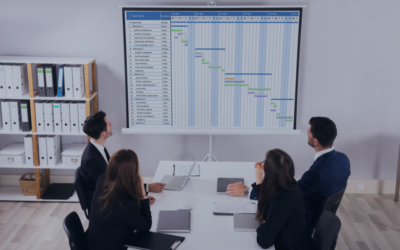You and your team have decided the edge you need involves implementing an ERP solution at your company. Now the question is, how much is this going to cost you? In order to compare software quotes properly, you need to have a thorough understanding of ERP software costs. What ERP software cost factors affect the overall bottom line of ERP software? Let’s walk through it.
Your Company
Let’s start with your company. How big are you? How many ERP users will you have? With most ERPs, the scale of your company will have a direct effect on your software cost. You also need to consider your industry. Certain industries come with more specific requirements, which can add to costs via customizations. Fortunately, there are also many industry-specific ERPs out there that can give you the right answers for your space without driving up ERP software costs.
ERP Deployment Type
Do you need an on-premise solution because of compliance or regulation issues? Do you want to go with the enhanced flexibility of a cloud-based solution? Or is your ideal ERP somewhere in between? Deciding this will have a direct impact on your overall cost. For most SMBs, a cloud deployment offers a fast and affordable option that ticks all the right boxes without driving up costs or complexity. Going with a cloud-based ERP can also help reduce ongoing IT costs for your organization, as well. (See more on that below!)
Integrations
Do you have existing solutions you want to leverage in tandem with ERP? The integrations needed to allow your ERP to ‘play well’ with your existing solution can factor into the overall cost. Many of today’s software solutions integrate readily enough via APIs, but additional costs can come up in terms of training or customizations. Your team may need to learn a new workflow, for example, or your ERP solution may need to make a few adjustments to fit into existing workflows built around your legacy solutions.
Training
Your team may need some training to take on a new ERP solution. As discussed above, training can involve knowledge transfer on how workflows need to adjust in response to a new implementation. Training can also involve explaining the value of ERP to your team so that they understand the higher-level goals and impact of the new software.
Many ERP vendors include training as part of an implementation, FYI, so choosing the right ERP vendor can help. Keep in mind, too, that working with the right vendor to find an ERP solution that works well for your company’s specific business needs can help mitigate training costs right from the start. The right ERP will fold right into your organization without too much change and limit impact to the ROI you experience with ERP.
Ongoing Maintenance
If you go with a large-scale, on-prem deployment, you will need a sizable IT team that can oversee the ongoing maintenance of your hardware and software systems. If you select a cloud-based ERP, it’s likely that your vendor will take care of most of that, giving you some serious relief with this cost factor and reducing how much you will really pay for ERP.
Next Steps
Sure, there are some parts of your ERP cost you have no control over. But that doesn’t mean there aren’t things you can do to stay on budget. Our experts share 10 money savvy tips in this free eBook.



